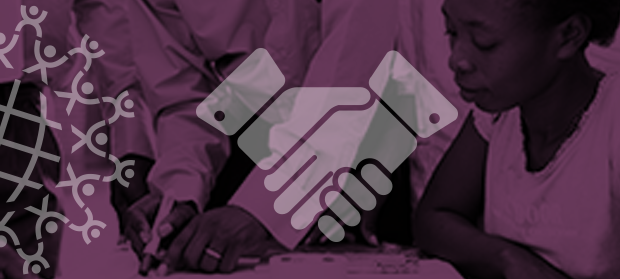Where We Work
See our interactive map


Pape Gaye offers five steps diplomats can take to help more countries invest in health.
A few months back, I was in the Dominican Republic, standing before a crowd of government officials, local IntraHealth International staff members, and many others, as we talked about "ghost" workers.
A few years earlier, IntraHealth had worked with the Ministry of Health there, as part of a USAID-funded project, to conduct a payroll analysis. This may sound humdrum, but what we found was quite striking: some 10,000 individuals who were no longer working for the ministry were in fact still collecting salaries from it.
These ghost workers, as we call them, were draining the public health sector of more than $6 million per year, and as a result, health care for Dominicans was suffering.
As the ambassador spoke, I could see the audience's response.
Once these data came to light, officials were able to address the issue and reinvest the savings back into the health sector, hiring new health workers and providing much-needed raises for its existing workforce. It was a great success. The national health system became stronger and more Dominicans gained access to essential health care.
In fact, the number of family planning, prenatal, postpartum, and laboratory visits (including HIV testing) jumped by 517% in one region, from 1,981 visits to 12,237.
But it wasn't my account of these improvements that had the most profound effect on the officials gathered at that high-level event—it was the US ambassador's.
As then-Ambassador James Brewster spoke about those 10,000 ghost workers and reiterated the US's commitment to partnering with the Dominican Republic to reach universal health coverage, I could see the audience's response. The local government officials were focused, and energized to see this enthusiasm and commitment from such a high-level diplomat. They left eager to keep this thing we have together going.
Unfortunately, many of the Dominican Republic's health challenges are not unique. Worldwide, we face a looming shortage of some 18 million health workers, as well as chronically under-funded health sectors, lingering HIV epidemics, and alarming vulnerabilities to emerging health threats. International development organizations like IntraHealth are working hard to build local capacity for sustainable change, but we cannot do it alone.
The diplomatic community could be a key to resolving this crisis.
Development and diplomacy are two of the three pillars that provide a foundation for promoting and protecting US national security interests abroad (the third, of course, is defense). In fact, American diplomats and ambassadors can be powerful advocates in international development and global health. We could be working together to help even more countries see that investing in their health workforces is one of the smartest moves they can make, both for the good of their populations and economies and for our global well-being.
Here are five steps the diplomatic community can take to help solve our global health workforce crisis:
Organizations like IntraHealth work across countries and continents. We act as ambassadors for health to the governments in all countries where we work. And health workers ultimately act as ambassadors for health in their communities.
But we call on the diplomatic community to use its words and deeds—which carry great weight—to work with us to solve this crisis that affects us all.
This post was originally published in American Diplomacy.
Get the latest updates from the blog and eNews




